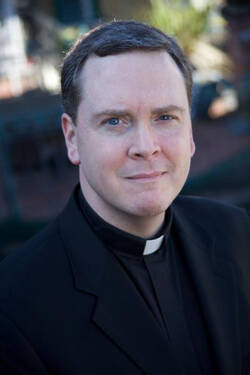Few chapters in America’s long history are a source of greater pride for us than our decades-long association with John Courtney Murray, S.J.; and nothing in the present issue should be interpreted to the contrary. Father Murray was a friend, associate editor and contributor to this review for more than 20 years. In almost two dozen articles he explored the relationship between Catholicism and American democracy, seeking to show not “whether Catholicism is compatible with American democracy,” a question that Murray considered “invalid as well as impertinent,” but to show “that American democracy is compatible with Catholicism.” Father Murray’s most persuasive answer to the so-called compatibility question was We Hold These Truths: Catholic Reflections on the American Proposition, an essay collection he published in 1960.
Father Murray’s work is lucid, imaginative, even daring. When one reads We Hold These Truths, one is reminded on nearly every page that a great mind is at work. That not even so great a mind as Murray’s could solve the “problem” of “religion” and American public life suggests, however, that the problem was and remains misconceived. That, at least, is the substance of the critique by Michael Baxter that appears in this issue. Professor Baxter’s work, as well as our decision to publish it, should be seen as part of a larger conversation among friends who are discerning how best to apply Father Murray’s insights to the contemporary United States. There can be no question of ignoring Murray’s work; he developed essential categories and valuable methods for the creative development of American Catholic thought. At the same time, we should consider what aspects of the Murray project, as he conceived it, are still viable. Those who knew him say that Father Murray would have welcomed this conversation; he himself was in the process of revisiting his earlier thought when he died suddenly in the summer of 1967.
Contemporary critiques of the Murray project suggest that his answer was not necessarily wrong, but that the compatibility question itself is unanswerable, at least on the level at which Murray pursued it. An answer at that macro level requires so many levels of abstraction that the result is often an unwieldy historical, philosophical or theological superstructure that cannot support itself.
It is almost certain, moreover, that the answer to the compatibility question, even in its most general form, is neither “yes” nor “no,” but somehow “both.” There are important ways in which American life is and is not compatible with a Catholic faith. The current state of the question, then, calls for a new method of questioning, one that is narrower than Murray’s: Which aspects of American life are compatible with Christian faith? Which are not? More important, is this particular historical event or choice justified in the light of Christian faith? Is the conduct of this institution, or the impact of that public policy, or the moral character of that market force, compatible with the principles of Catholic faith? Our contemporary questions, therefore, should be concerned with the lived experience of Americans.
Ultimately the compatibility question is not an intellectual exercise at all, but simply the work of Christian discipleship. “The things that we love,” St. Thomas Aquinas says, “tell us what we are.” So, whom do we love? Who or what, practically speaking, are the gods we worship? For what and for whom are we willing to die? Do we really live in the hope of heaven and with the possibility of hell? To put the question differently: What would our country look like after we have rendered “unto Caesar what is Caesar’s and unto God what is God’s”?








